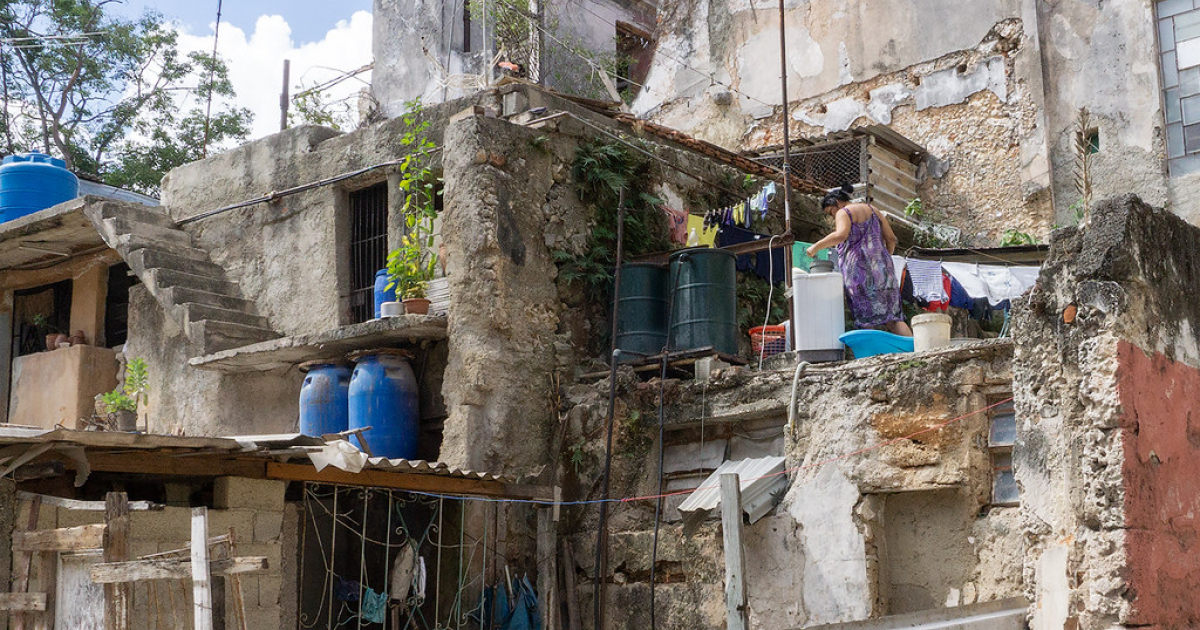
Vídeos relacionados:
Many Cuban and foreign publications encourage people to travel to Cuba for tourism, for its beaches, marine life, nature, cuisine, or music. The most idealistic speak of "traveling in time", selling a romantic image of its dilapidated buildings, classic cars, or extolling the "dignity" of living in poverty. If you are thinking of traveling to Cuba for any of these reasons, whether to get to know the Cubans closely or to enjoy their natural charms, here are 10 reasons why you should not.
1 - Cuba is a Dictatorship
Cuba is a dictatorship and citizens do not enjoy civil and political rights and freedoms. Communism is enshrined as the only ideology that rules the country. There is no multi-party system, freedom of expression, market, or free press. The regime controls Cubans through repression, coercion, propaganda, and indoctrination.
Lo más leído hoy:
2 - There are more than a thousand political prisoners in Cuba
On this island of beautiful beaches, there are more than a thousand political prisoners for peacefully demonstrating during the historic protests of July 11, 2021 (11J). Artists such as Luis Manuel Otero Alcántara and rapper Maykel Osorbo, opponents like José Daniel Ferrer, activists, women, men, elderly, children, cancer patients... the list of the reprisals saddens the hearts of millions of parents, siblings, friends, and citizens crying out for justice.
3 - There are exiled citizens in Cuba
The totalitarian regime that has controlled the country for more than sixty years uses exile as a form of punishment for those Cubans critical of the reality. Activists living abroad are prevented from returning to their country without having committed any crime, only exercising their freedom of expression.
4 - There is an economic and structural crisis in Cuba
High prices, scarcity, and long lines mark the daily life of Cubans, who suffer from uncontrolled inflation that increases the price of food and basic necessities to unaffordable levels with the salaries of Cuban workers. All services are practically collapsed, from Public Health to education. The stores are empty in Cuba. Both those for tourists, as well as the stores where Cubans buy the scarce rationed products that the State sells in a "basic basket". The controversial newly created MiPymes have more variety, but their prices are exorbitant.
5 - Robberies and assaults on the streets are increasing in Cuba
The increase in crime and criminality in Cuba is alarming, reaching unprecedented extremes, such as score-settling and assaults with firearms. The economic and migratory crisis has opened the doors to a hell where poverty and lack of opportunities throw many Cubans into the sea or to survive outside the law. The police are effective in repressing Cubans, but ineffective in containing criminal violence.
6 - There is no gasoline in Cuba
The economic crisis in Cuba, caused by the communist system imposed by the regime, has one of the biggest problems for the dictatorship in this 2023 in the fuel crisis. Without fuels, the country suffers a generalized paralysis, which goes from agriculture to services. Historically it has behaved similarly, but now even tourists have to queue for a long time to buy fuel. To this must be added the blackouts, those power cuts that Cubans suffer daily and for hours, and occasionally the tourists themselves.
7 - There is hardly any public transport in Cuba
The above could be mitigated if there was a good public transport network, but the reality shows that Cubans have to wait hours or pay astronomical amounts to be able to move. Tourists usually do not use these transports, because of their poor service and because they expose themselves to theft and other dangers in them.
8 - Many hotels in Cuba are impoverished
Not all of Cuba's tourist infrastructure is as advertised. The economic crisis has also ended up impacting the business managed by the military and leaders of the regime. Despite having allocated the bulk of public investment to the construction of more hotels (neglecting hospitals, schools, and other essential services), the housing stock of the island is among the worst in the world, with impoverished hotels, terrible restaurants, products in poor condition, and the worst quality tourist rental services.
9 - The cities and towns in Cuba are destroyed
The idyllic image of buildings in ruins, used as a claim for tourists, hides a painful reality of the country: Cubans have been suffering a housing crisis for decades. The lack of investments in public works, in restoration of architectural heritage, in water services, lighting, sanitation, and garbage collection turns Cuban towns and cities into unhealthy and dangerous environments, with occasionally deadly collapses.
10 - Tourism in Cuba does not contribute to improving this situation
Does the advertising of tourism in Cuba speak of GAESA? No, the Group of Business Administration S.A., the conglomerate of companies in the power of the military and leaders of the regime, which controls investment, telecommunications, imports, and tourism in Cuba, is never mentioned. The money from tourism in Cuba goes to the coffers of this oligopoly that only benefits the top of the totalitarian regime, which is not accountable and prevents the free development of Cubans.
Archivado en:
Artículo de opinión: Las declaraciones y opiniones expresadas en este artículo son de exclusiva responsabilidad de su autor y no representan necesariamente el punto de vista de CiberCuba.
